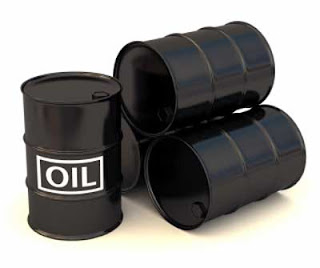United States crude inventories dropped by 1.2 million barrels, or 0.3
percent, to 387.6 million barrels, which is 5 percent above year-ago levels,
the Energy Department's Energy Information Administration said in its weekly
report.
Gasoline supplies fell by 600,000 barrels, or 0.3 percent, to 221.7 million
barrels. That's 3.6 percent above year-ago levels. Analysts expected gasoline
supplies to shrink by 1.1 million barrels.
U.S. refineries ran at 86.3 percent of total capacity on average. Analysts
expected capacity to rise to 87.3 percent. Supplies of distillate fuel, which
include diesel and heating oil, grew by 2.4 million barrels to 115.2 million
barrels. Analysts expected distillate stocks to decline by 850,000 barrels.





